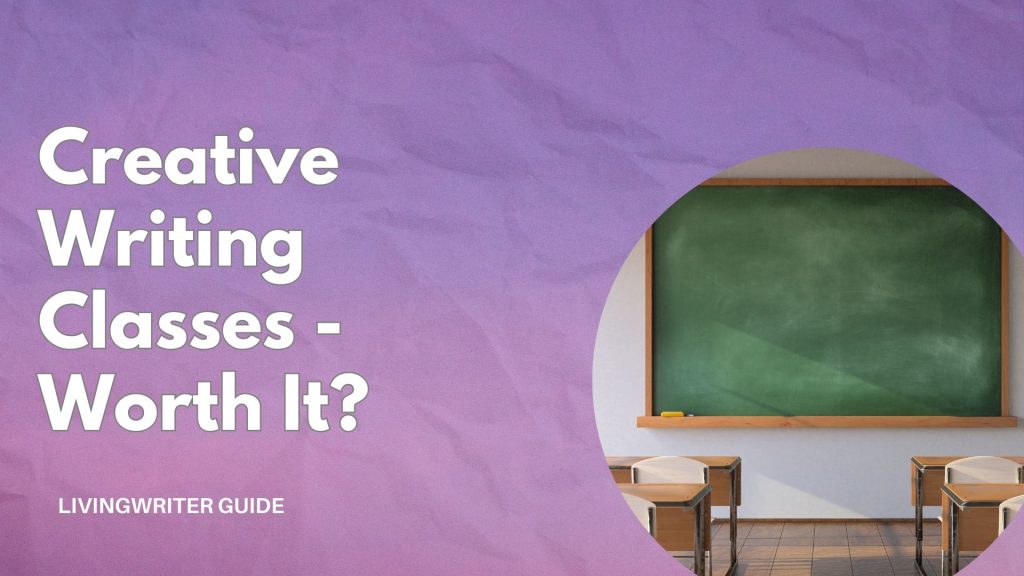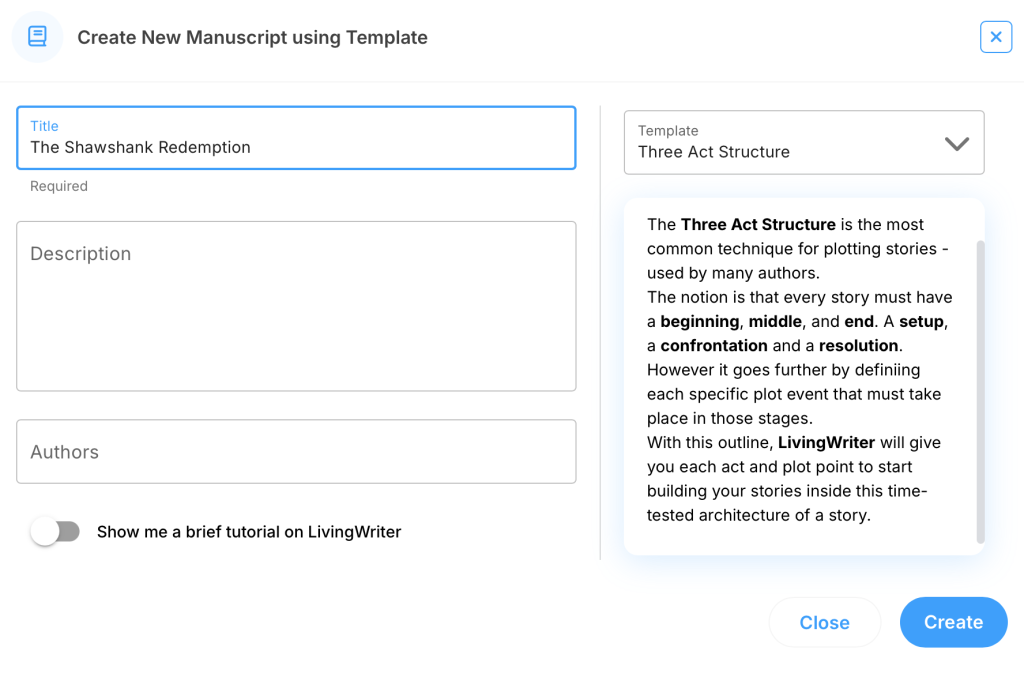Are Creative Writing Classes Worth It?

Being a writer, especially as a beginner, means being on a near constant search for improvement. From writing to reading, we all look for ways to level up our writing game. One possible method is taking writing classes. Today, we’ll be taking a look at what creative writing classes have to offer and if it’s generally worth the time and money.
In general, I tend to lean toward creative writing classes not being worth it. At least when you consider that the fundamental concepts they usually teach can be learned in other places. That leaves their biggest selling point, which is that they encourage you to write, which can be a massive upside.
So, creative writing classes do have some value. However, they may not be a good fit for everyone. We’ll look at the pros and cons and discuss some alternatives methods of learning to write. So, without further ado, let’s dive deep into the question, “Are creative writing classes worth it?”
Table Of Contents
Are Creative Writing Classes Worth It?
First, we must acknowledge that not all creative writing classes are the same. Exactly what a course teaches will vary. Furthermore, how useful a given course is will depend on your current skill level, available time, and budget.
If you’re an absolute beginner, you may find them more helpful than someone with more experience. In general, some things you might expect to learn would be:
- Basic grammar, sentence structure, and other technical aspects of language
- Storytelling concepts such as “show, don’t tell.”
- A general idea of different POVs in fiction
- How to format dialogue
- Basic story structure concepts
- Techniques for brainstorming and idea generation
While learning the more technical side of “the craft” is important, it’s only a piece of the puzzle. Creative writing classes can teach you how to write, but they can’t teach you how to be a writer. In other words, a class can introduce you to all of those things but they won’t make you automatically good at them.
Just like someone attending their first boxing lesson would be taught the purpose of a jab, without endless reps, it’s just an idea. Aside from the basic grammar, you’ll need a lot of practice to put any of the aforementioned advice to good use.
That said, creative writing classes probably won’t fast-track you to success. But that’s not to say they have no benefit. Let’s look at their greatest strengths.
The Benefits of Creative Writing Classes
So, writing classes will not get you out of practice and hard work. Classes alone won’t get you far… And while this is perhaps their biggest limitation, it leads to perhaps their most significant advantage. Classes can force you to write regularly and to share your work with others, two crucial aspects of the writing process that so many aspiring authors struggle with.
If you’re in a class, hopefully you’re spending time putting words to page. If so, then you’re on the right track. Of course, you can get your reps in without a class, assuming you can self motivate. And even then, the feedback received in class can be invaluable for identifing areas for improvement and gaining confidence in sharing your work.
Furthermore, creative writing classes can provide a sense of community. Connecting with other writers, sharing your work, and receiving constructive criticism can be incredibly motivating and inspiring. When the environment of the classroom makes the difference in you actually writing, that’s a big upside as it encourages you to put the concepts into action, which is the only way to improve.
Alternatives to Creative Writing Classes
Now that we’ve covered what writing classes are likely to provide and where they fall short, let’s get to the alternatives to writing classes, which greatly sway my overall opinion on if taking a class is worth your time and money.
In the age of the internet, there are numerous online resources that can teach you everything a writing class would, for free (or a fraction of the cost), and from the comfort of your home. Having said that, for those looking to improve at writing and storytelling, writing classes probably aren’t going to be worth it, most of the time.
LivingWriter Blog
You can find in-depth, actionable advice on all major writing fundamentals right here on the LivingWriter Blog. The benefit of using the blog is that it scales with you quite well. If you’re a beginner, you can get an introduction to the basic ideas you should be focused on, like learning how to pace a novel and how to use the three act structure with examples.
If you’re more experienced, you’ll find things like how to write better characters, and hard writing excersies to level up your story telling more helpful. You can also pick and choose which information is most helpful to you and focus on that.
Writing With LivingWriter
In addition to the LW blog, you can write directly with LivingWriter and get a lot of convenience and guidance that reinforce good fundamental writing habits and make you more likely to write often. For example, you can apply common story structure templates (like the three act structure or hero’s journey) directly to your manuscript.

Hands on features like this can help you understand story structure in ways that simply reading about it won’t. Plus, if you’re focusing on another element (let’s say, writing more unique characters) the templates let you focus less on structure and more on characters without being all over the place.
If you don’t have other writers to review your work, the AI Analysis can provide you with feedback about sections of your work, including an overview, suggestions for improvements, and a tone analysis. You can take personalized feedback ever further with the Manuscript Chat.
The chat is your go-to tool for any and all questions related to your manuscript. It can answer theoretical questions about your plot or characters, tell you if you’re chapters are verbose, or if a certain section would be more considered “info dumping” than worldbuilding.
Using one of my personal stories, I asked, “How good is my story? If you were a teacher in a creative writing class, what would you rate my work and why?” Here is the feedback, starting with what I did well.

Considering these tend to be some of my stronger skills, I’m not surprised by this. Now, onto what I didn’t do so well.

Dialogue, conflict, and character motivation are all extremely important to a good story and some of the harder stuff to get down, at least for me. Now, I have some clear goals to work on and some genuine direction as I move forward. This is essentially a personal version of what you may get with a writing class.
YouTube Channels
There are countless YouTube channels devoted to teaching people how to write. Exactly which ones will be most helpful to you depends on what type of stories you write (novel vs short story, for example), the genre, and what you’re trying to learn.
I recommend you find a couple that fit your niche and style stick with them, when possible. There is no “right or wrong” way to do most things, so it’s possible you encounter some contradictory advice when jumping between many channels. Try them all and do what works best for you.
Conclusion
Ultimately, the decision of whether or not to take a creative writing class is a personal one. While these classes offer some technical knowledge and a structured environment, they won’t turn you into a writer by themselves.
The most important step to becoming a writer is to write consistently with the intention to improve. Seeking honest feedback is also importnat. Beyond these, where you learn the more technical aspects of the craft doesn’t matter nearly as much as you may think as long as you get the fundamentals down.